 Petzlover
Petzlover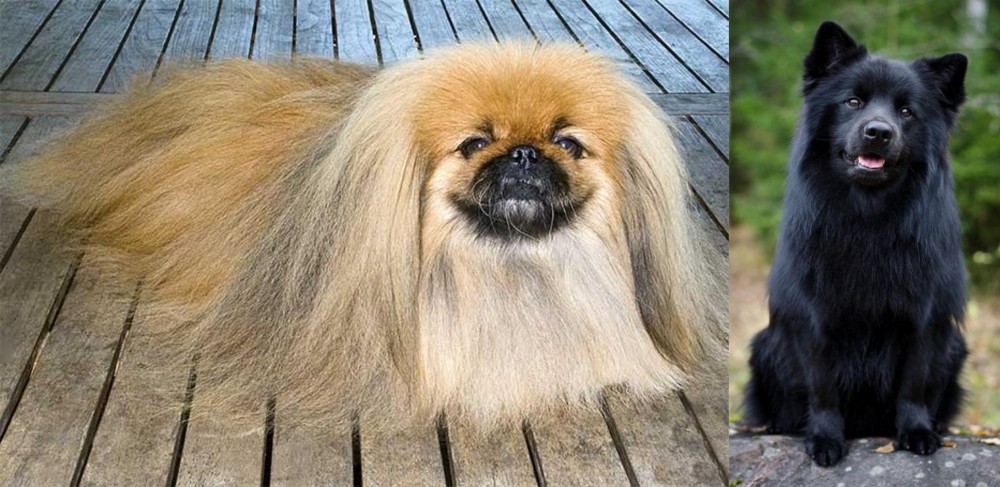 Pekingese is originated from China but Swedish Lapphund is originated from Sweden. Pekingese may grow 6 cm / 2 inches shorter than Swedish Lapphund. Pekingese may weigh 14 kg / 30 pounds lesser than Swedish Lapphund. Both Pekingese and Swedish Lapphund has almost same life span. Pekingese may have less litter size than Swedish Lapphund. Both Pekingese and Swedish Lapphund requires Moderate Maintenance.
Pekingese is originated from China but Swedish Lapphund is originated from Sweden. Pekingese may grow 6 cm / 2 inches shorter than Swedish Lapphund. Pekingese may weigh 14 kg / 30 pounds lesser than Swedish Lapphund. Both Pekingese and Swedish Lapphund has almost same life span. Pekingese may have less litter size than Swedish Lapphund. Both Pekingese and Swedish Lapphund requires Moderate Maintenance.
 This is an ancient dog breed that originated in China. Known also as Lion Dogs, they are toy dogs that have always been a popular choice for Chinese royals.
This is an ancient dog breed that originated in China. Known also as Lion Dogs, they are toy dogs that have always been a popular choice for Chinese royals.
DNA analysis tells us that these dogs are one of the oldest dog breeds there are and over the years, the dog has barely changed in looks.
The dogs found their way out of China, and as they started spreading to the USA and the UK, Pekingese clubs started emerging. A pekingese dog was registered by the American Kennel Club in 1906, and the Pekingese Club of America was formed in 1909.
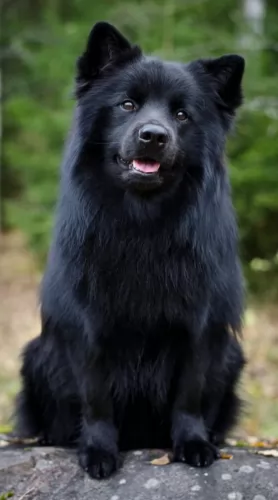 This is a Spitz type of dog from Sweden. It is Sweden’s national dog.The dog has always been used for herding and guarding livestock such as reindeer for the Sami people.
This is a Spitz type of dog from Sweden. It is Sweden’s national dog.The dog has always been used for herding and guarding livestock such as reindeer for the Sami people.
The dog is much the same as the Finnish Lapphund, and some even believe that it might be one and the same. The American Kennel Club recognizes them as two separate breeds.
It is one of the oldest Swedish dog breeds and also one of 3 Lapphund breeds.The Swedish Kennel Club recognized the Lapphund as a distinct breed in 1903.
The Federation Cynologique Internationale recognized this dog in 1944, and the United Kennel Club in 2006.
 The Pekingese is a dog which stands at between 30 – 45 cm and weighs anything from 3 to 7kg.
The Pekingese is a dog which stands at between 30 – 45 cm and weighs anything from 3 to 7kg.
His double coat can be fawn, cream, apricot, grey, or black or even a mix of some of these colors.
The Pekingese is known for its flat- or squashed face and his large, bulging type of eyes. His body is low to the ground and is somewhat longer than what it is tall. He has long, silky, feathery ears and his tail is plumed and essentially held over his back. The face usually has a black mask.
The Pekingese is a stubborn, independent, intelligent dog, but with his human family he is loving and loyal. People often look at the Pekingese and think that it is a delicate dog that just wants to sit on your lap and be cuddled. But this isn’t the case and the Pekingese is a dignified, robust, bold, confident dog. He is essentially an indoors dog though and will be content for a while to lie close to his human companion. He is calm and quiet indoors but is also game for some activity, being quite a playful dog.
The Pekingese is the kind of dog that will slot easily into city or country living. He gets on well with children but if he could choose, he would prefer to live with calm, consistent adults, as he doesn’t gel too well with raucous, undisciplined children.
He is a wilful dog and will require being trained and socialized to make him obedient and more amicable.
 The Swedish Lapphund is a medium to large sized dog standing at between 40 to 51cm in height and weighing between 19 and 21kg.
The Swedish Lapphund is a medium to large sized dog standing at between 40 to 51cm in height and weighing between 19 and 21kg.
The head is wedge shaped and the ears erect. He has a thick double coat with fairly straight, silky hair that stands out from the body. Colors can be brown or black and sometimes there can be white markings. He sheds quite a bit, with some heavier seasonal shedding.
When you get one of these Spitz type dogs as your pet, you can be sure that you’re going to have an excellent pet and companion.
They’re independent dogs with strong wills and like to do their own thing. Training and socialization can change that and make him easy, well mannered and obedient.
They’re lively dogs and intelligent too. He is versatile, loving to be outdoors and being energetic with the children but being able to enjoy some quiet time indoors too. He is simply an excellent family pet and watchdog.
 Sometimes when his hair has grown long and he has a ribbon in it he may be looked upon as shallow, pathetic and nothing but lapdog. In reality his heart is brave, tough, dignified and confident.
Sometimes when his hair has grown long and he has a ribbon in it he may be looked upon as shallow, pathetic and nothing but lapdog. In reality his heart is brave, tough, dignified and confident.
All the Pekingese wants is to be a normal and loving pet for the right kind of person who appreciates all his strong characteristics.
He is capable of being quite lively and protective of his human family. Give him love and treat him kindly and firmly and you’ll find out why he is such a popular dog breed.
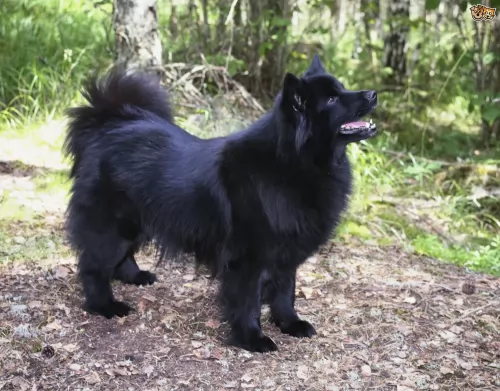 The Swedish Lapphund has always been a hardworking dog, herding reindeer for the Sami people.
The Swedish Lapphund has always been a hardworking dog, herding reindeer for the Sami people.
Today the Lapphund is a people-loving dog and wants to be constantly with his human family. He is intelligent, strong, independent, loyal, bold and loving. If you’re looking for an excellent family companion, this is it.
Do him a favor and don’t leave him outside without human companionship as he will become run-down and possibly destructive through no fault of his own. Bring him into your family and make him part of it and then he’s happy.
 The Pekingese can live to be between 10 – 15 years of age. One of the main medical problems with this dog is his squashed face which can be a source of breathing problems for him.
The Pekingese can live to be between 10 – 15 years of age. One of the main medical problems with this dog is his squashed face which can be a source of breathing problems for him.
The large, bulging eyes can also cause quite a few problems such as glaucoma, cataracts and eye ulcers. With Entropion the eyelid of the eye rolls inward and irritates the eyeball.
Your Pekingese shouldn’t be left outside as with his breathing problems, he isn’t good with regulating body temperature and can overheat in hot weather.
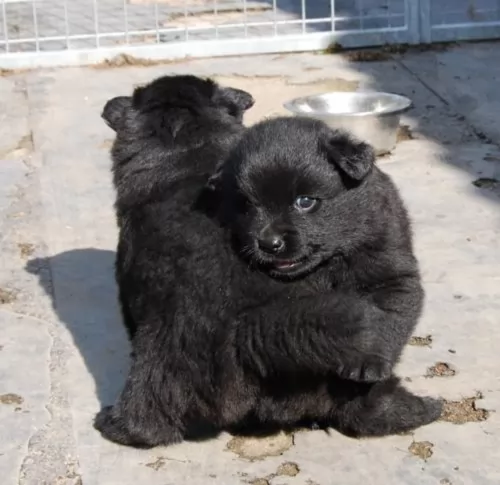 The Swedish Lapphud is a healthy dog breed, but even so he can get one of the many common dog illnesses there are.If you choose a puppy, make sure to get your pet from a reputable breeder to avoid more serious dog illnesses.
The Swedish Lapphud is a healthy dog breed, but even so he can get one of the many common dog illnesses there are.If you choose a puppy, make sure to get your pet from a reputable breeder to avoid more serious dog illnesses.
Diabetes Mellitus is a disease you might have to watch out for with this dog breed.
This is a disease of the pancreas. This organ has two groups of cells – one produces enzymes for proper digestion and the other produces the hormone insulin which regulates the level of glucose in the bloodstream.
Diabetes is when the pancreas fails to regulate blood sugar. Your dog will have increased thirst and urination, weight loss, and increased appetite.
Type I diabetes mellitus results from destruction of the insulin-producing beta cells, which is the most common type of diabetes in dogs. Dogs with this type of diabetes require insulin injections to stabilize blood sugar. Type II diabetes is more likely in older, obese dogs.
Dogs with diabetes mellitus will require insulin each day. If canine diabetes mellitus is properly regulated, prognosis for the dog is good.
 Nothing is set in stone when it comes to the diet of your Pekingese or any other dog for that matter. How much a dog eats will depend on his breed, his age, his size and his activity levels.
Nothing is set in stone when it comes to the diet of your Pekingese or any other dog for that matter. How much a dog eats will depend on his breed, his age, his size and his activity levels.
Every dog is an individual and your Pekingese is too. Good food however dictates a lot on how healthy your pet will be so it will be to his benefit to give him the best quality commercially manufactured food there is.
He loves a bit of variety too so if you chop up some boiled chicken, brown rice and some wholesome vegetables such as carrots, spinach and sweet potato and add this to his kibble occasionally he will be delighted. He doesn’t want anything unusual or spicy because he can’t bear to have an upset stomach.
He must never be without a continuous supply of fresh, cool water.
The Pekingese doesn’t have serious exercise needs, and a little bit of running and exerting himself can have him snorting and grunting. A slowish walk outside will satisfy his exercise needs.
The coat of the Pekingese is long and thick and if you choose to keep it that way it will require brushing at least twice a week. Some people prefer to have the dog’s hair cut professionally as then it is easier to manage.
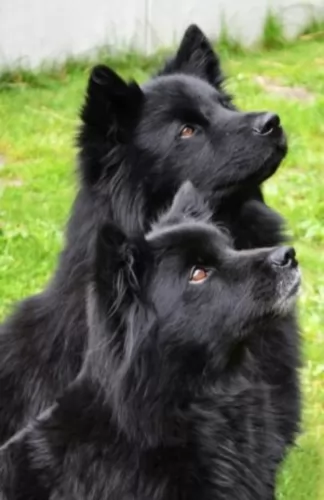 ●The Swedish Lapphund is an active dog and will require a high quality dog food. If you buy commercially manufactured dog food it should be appropriate to your dog’s age and activity levels.
●The Swedish Lapphund is an active dog and will require a high quality dog food. If you buy commercially manufactured dog food it should be appropriate to your dog’s age and activity levels.
Home-made food like boiled chicken, brown rice, spinach and sweet potatoes will do your pet the world of good, and chopped up, it can be added a couple of times a week to the dog’s dry kibble.
Try and feed some raw met occasionally as well. Clean, fresh water should be available at all times.
●The Lapphund is an active dog and he is going to reguire daily exercise that will keep him mentally and physically fit. Having a dog like this requires you being active yourself, and your Lapphund is going to love going on long walks or hikes. He will never get enough games with the children – he just loves the rough and tumble.
● Have his vaccines attended to. There are training classes as well as boarding kennels that won’t accept your dog unless his vaccines are up to date.
● Have your dog spayed or neutered if you don’t want your dogs to have puppies.
● Brush his coat twice a week. Check inside his ears and inside his mouth for redness and infection.